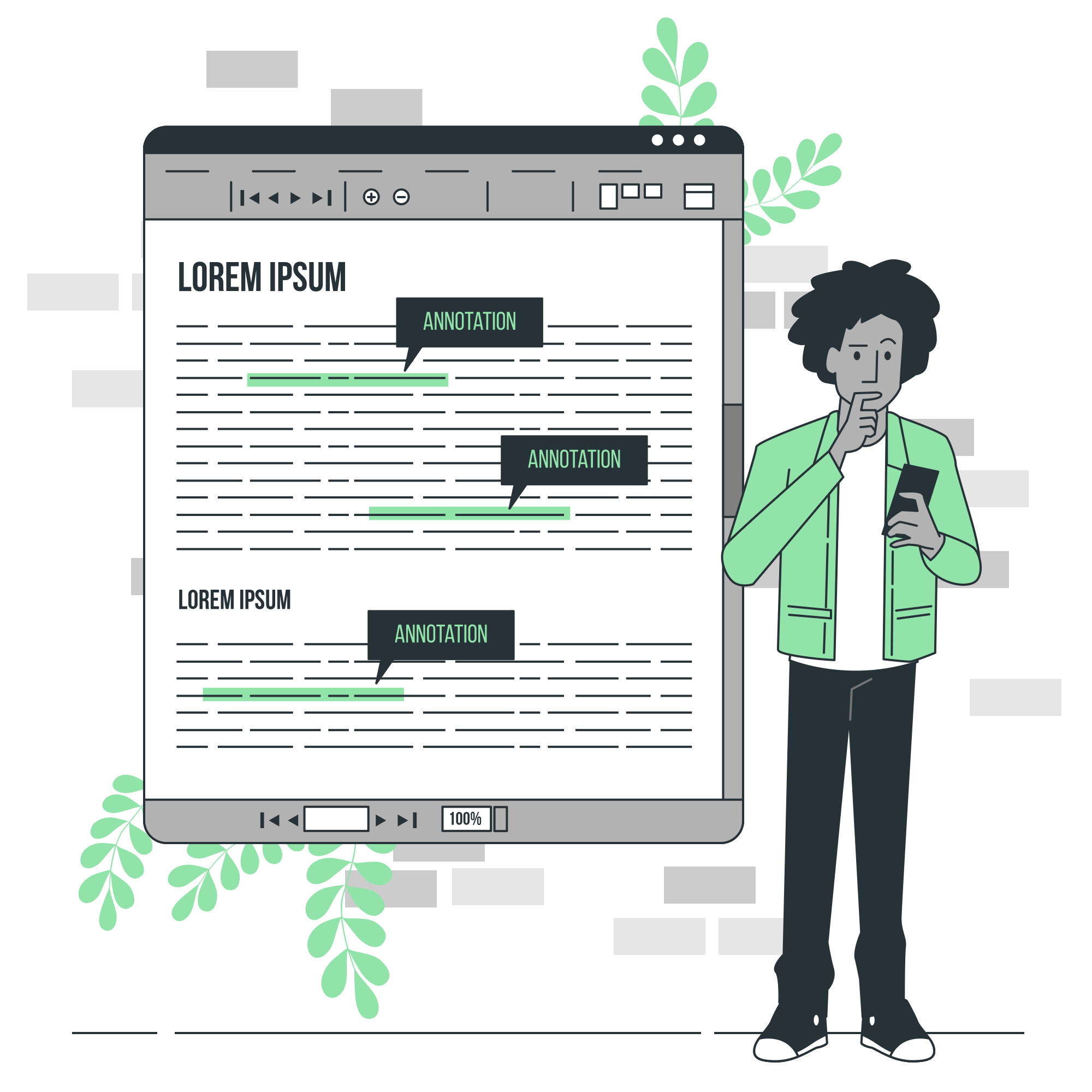If you have any questions about our course offerings, kindly contact Karlien Potgieter (karlien.potgieter[at]mandela.ac.za).

6 weeks | English, French
This module aims to provide you with the skills needed to present your academic work in a professional manner. You will learn how to produce professional Word documents, presentations and posters. The pedagogical approach used includes evidence-based practices of repetition, retrieval, reflection and generative and interleaved practice, all designed to make what you learn ‘stick’. By practising and mastering the skills required in this course, you will be able to present your academic writing and prepare visual presentations without having to think too much about how to present your work professionally.

8-10 weeks | English
This course helps students to identify the expected aims of the components of a formal research proposal to demonstrate an intended coherent study towards a critical statement of their positionality as researchers.

Self-paced | English, French
This course is designed for DIGI-FACE members eager to learn more about the Online Classroom through Moodle. Moodle is an open-source Learning Management System (LMS) and platform of choice for countless global universities.

3 weeks | English
This module is designed to equip participants with the skills necessary to construct an enhanced online learning environment through the strategic application of instructional design and visual communication principles. Participants will learn how to structure content effectively, engage learners, and optimise knowledge retention. Additionally, they will explore the power of visual communication, discovering techniques to create visually compelling materials that facilitate understanding and promote active learning. By the end of the module, participants will possess the knowledge and tools to craft engaging, informative, and impactful online learning experiences that resonate with learners and drive meaningful educational outcomes.

3 weeks | English
This interactive course introduces participants to the basic features of Canva by improving existing documents and creating new ones. Both basic design principles and technical know-how are covered.

5 weeks | English, French
This course aims to introduce DIGI-FACE participants to the online classroom, also known as a Learning Management System (LMS). Moodle is the LMS used to host the DIGI-FACE learning site. It’s a very popular open source platform used by many universities around the world. In this course you will learn how to use Moodle both as i) a student and ii) a teacher. It is important to understand both roles so that you can become a course designer or facilitator who develops the best possible learning experience for your students.

4 weeks | English, French
This course aims at providing you with the basics needed for developing your own business concept. It provides reasons why you should use the knowledge and skills presented and will help you acquire the basic competencies required for getting started in terms of developing and offering successful online educational programmes via your Centre. The pedagogical approach used includes evidence-based practices and generative interleaved practice. By doing market research and elaborating your own business concept it will help you plan further steps for a strategy as to how your Centre can be financially sustainable in the long term when funding from the DAAD ceases.

3 weeks | English, French
This course aims at providing you with the basics needed for calculating the costs of an online courses in your Centre of Excellence. The pedagogical approach used includes evidence-based practice. Moreover, it should serve to provide your Centre with a basis for planning further steps in the professionalisation of e-learning activities and further organisational development in order to optimise resource planning.

3 weeks | English, French
This self-paced course will enable you to harness the potential of open education in pursuit of your own learning goals while adhering to the requirements of copyright in a digital world.
You will learn to effectively apply knowledge of copyright, open licensing and license remix compatibility using open education practices to support tertiary learning in a global digital context.

3 weeks | English
This mini-module is for anyone who has delivered lectures using PowerPoint presentations. It focuses on how to use existing PowerPoint slides for online teaching and learning using the Moodle learning management system.

6 weeks | English
This course aims at enabling you to write a clear, structured, and coherent proposal. You will learn the difference and links between the background information and the problem statement. By the end of the course, you will be able to determine the relationship between the research problem statement and the research objectives and propose research questions based on your research objectives. You will also be able to transition from research questions to research claims by following a series of steps. Additionally, you will become fluent in appropriate research designs and methodologies, samples and settings, research instruments, data generation, and data analysis. Finally, you will be able to express a clear understanding of your proposed research and accompanying research ethics.

12 weeks | English
This course aims at providing you with the skills required to frame and draft a journal article. It will help you understand the importance of a claim as the basis of your paper. It will also provide you with multi-media perspectives and activities to ensure that you successfully frame your claim based on a research problem informed by appropriate literature. The argumentation techniques covered will enable you to dissect the anatomy of arguments in journal articles and parsimoniously frame your own. You will have an opportunity to share your article’s arguments for peer review and to peer review the arguments of one of your class member’s paper.

8 weeks | English, French
This course introduces participants to the fundamentals of the quantitative research process. It covers methodology, an introduction to Microsoft Excel, some guidance on self-organisation and first steps in descriptive statistics (measures of central tendency, measures of dispersion and correlations). It will enable participants to carry out their first quantitative research projects with determination and confidence.

8 weeks | English
This course aims at providing participants with the skills required to understand and use inferential statistics. In order to reach this goal, the module will help participants reflect on and understand the differences between qualitative and quantitative research methodologies as well as the differences between descriptive and inferential statistics. They will be shown how to distinguish between the nature of parametric and non-parametric data sets and helped to understand when and why one should apply inferential statistics. Finally, throughout the course they will be guided on how to test and analyse these data sets by means of commonly used statistical techniques using freely available statistical software.

8-10 weeks | English
The course content takes into account the diverse contexts in which supervisors work as well as the differences in the postgraduate supervision processes across different disciplines. The pedagogical approach of this online course draws on participant interaction with the online interface, participant reflexivity to enable learning from one’s own and each other’s supervision experiences and reading of relevant postgraduate supervision related research.

4 weeks | English
This course introduces a selection of key pedagogical principles suitable for use in blended and online learning. Academics will be guided in how these principles can be used to design online learning content that adheres to the identified pedagogical principles. Selected tools and technologies that can be used to create learning content that adheres to the chosen design and pedagogical principles are introduced for the Moodle LMS.

4 weeks | English
The University Pedagogy module, designed for university lecturers, delves into essential pedagogical strategies to enhance teaching effectiveness and student engagement. Participants will explore active learning methods, impactful lecture delivery, diverse assessment and feedback techniques, and the integration of technology in the classroom. Additionally, the module addresses universal learning/accessibility and strategies to foster student engagement and motivation, aiming to equip lecturers with comprehensive teaching competencies to meet the diverse needs of their students.”

3 weeks | English, French
This mini-module is aimed at media and academic staff who are interested in learning more about creating educational and instructional videos for their centre using Padcaster. It also covers the basic steps of editing footage using iMovie and other free software, and how to upload a finished film to Moodle.